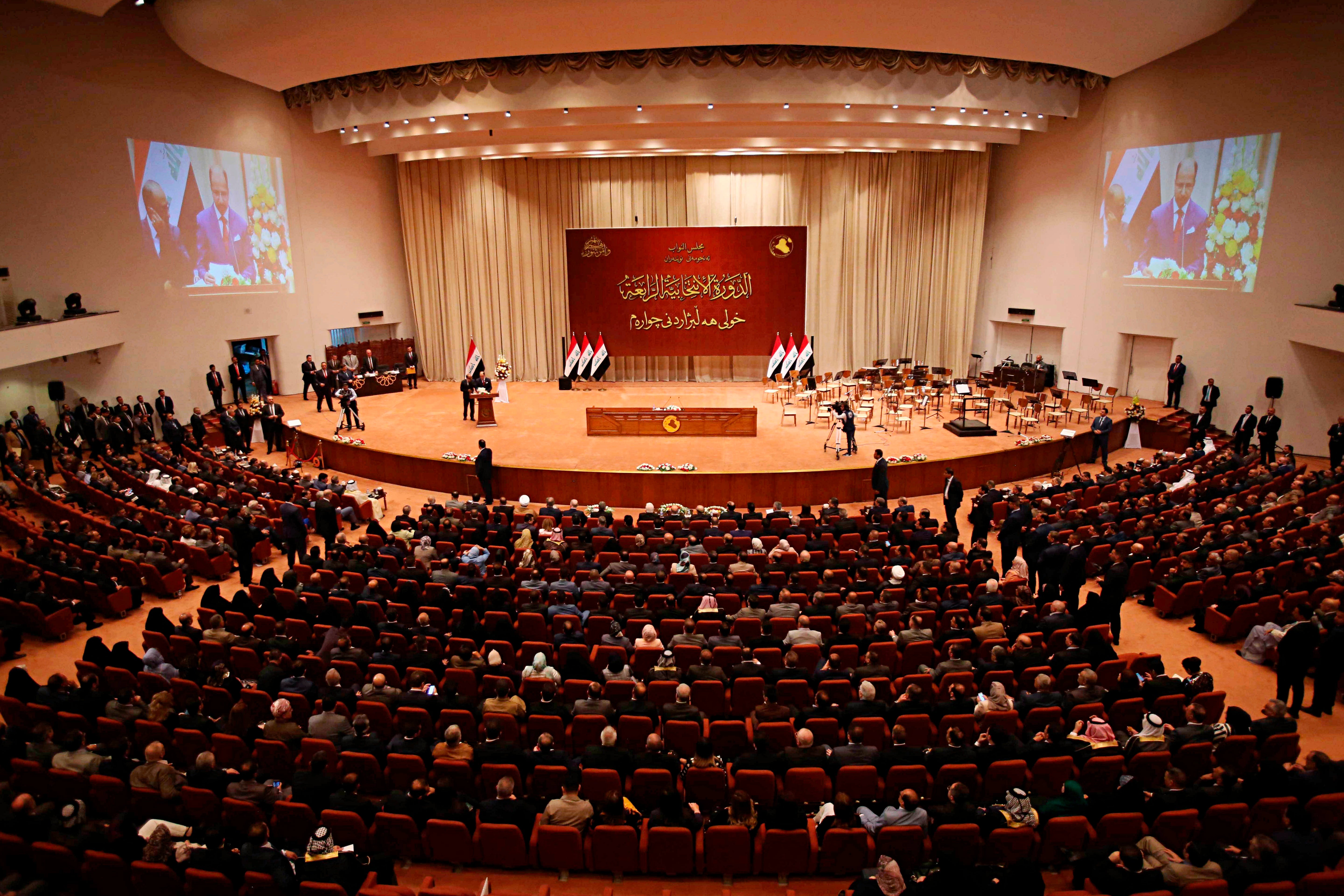Iraqi parliament passes controversial vote law amendments
Iraqi lawmakers have passed controversial amendments to the country's election law that could undermine the chances for smaller parties and independent candidates to win seats in future polls

Iraqi lawmakers passed early Monday controversial amendments to the country's election law that could undermine the chances for smaller parties and independent candidates to win seats in future polls.
The amendments increase the size of electoral districts, a move widely backed by the Coordination Framework, a coalition of Iran-backed parties. The coalition forms the majority bloc in the current parliament, which brought Prime Minister Mohammed Shia al-Sudani to power last year.
The bill passed in a 206-12 vote in the 329-seat assembly, according to media reports. The remaining lawmakers were absent from the hourslong session, which started on Sunday night.
The amendments also reverse key articles passed ahead of the 2021 federal election and redraw the electoral maps to have Iraq return to one electoral district per each governorate.
Several Iraqi political blocs and independent parliamentarians had rejected the amendments and stalled the vote for weeks. Hundreds of protesters gathered over the past weeks to voice their opposition.
Independent lawmakers who objected to the law walked out of a previous session, causing it to be postponed due to a lack of quorum. They attempted to stall the vote again overnight by protesting and disturbing the count, before Iraqi security forces escorted them out of the assembly hall.
On Saturday, hundreds protested in Baghdad against the new amendments, while some protesters in other parts of Iraq blocked roads with burning tires.
“These amendments will only fortify the rulers in power and their corruption, and exclude independent and new political groups," one of the protesters, Mohamed Al-Daami, told The Associated Press. He described the amendments as “unjust.”
Iraq's previous election law was adopted following mass anti-government protests in 2019. That legislation gave independent candidates and grassroots movements a better chance at winning seats. Its drafting and the subsequent 2021 elections involved technical assistance from the United Nations. The vote was lauded as a “substantial achievement” by Jeanine Hennis-Plasschaert, the U.N. special representative to Iraq.
The outcome of that election shocked the Coordination Framework, which lost seats while its chief political rival, firebrand Shiite cleric Muqtada al-Sadr was declared the clear victor.
Al-Sadr's political bloc gained 74 seats in the 2021 polls, while the Fatah Coalition, made up of Iran-backed parties, lost nearly half of its votes and more than two-thirds of its seats, compared to the 2018 polls.
Despite emerging as the clear winner in the election, al-Sadr did not win a parliamentary majority needed to form the government. An alliance with Sunni and Kurdish parties fell apart after the cleric, frustrated by months of political impasse, ordered his lawmakers to resign in a sudden move that many observers said was a miscalculation.
The move allowed his political rivals in the Coordination Framework to amass the needed parliamentary majority to form the government and name al-Sudani as prime minister.
Amending the electoral law and reversing the articles that effectively disempowered the ruling coalition from the vote emerged as a priority for the new government.
Iraq's provincial elections are slated for Nov. 6, the country's first local vote in a decade. Independent candidates fear the elections under the new law will empower ruling parties, which they accuse of rampant corruption.
The Iraqi government hast not yet scheduled the country's next general elections.
Bookmark popover
Removed from bookmarks